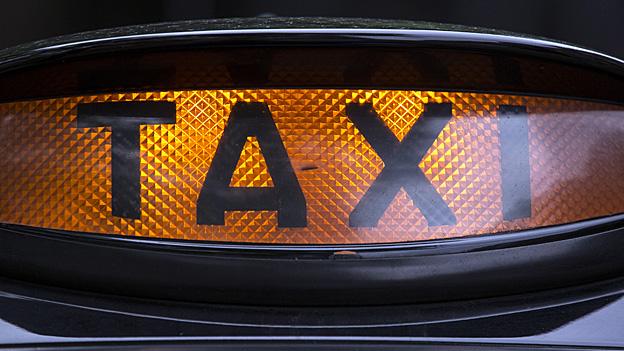Will Uber drivers turn on Uber?
- Published
- comments
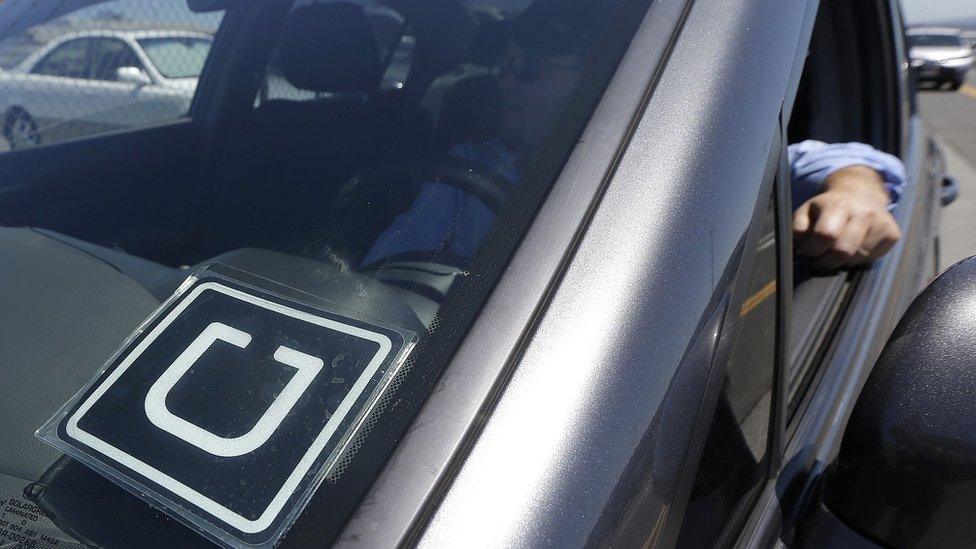
This week a judge decided that a legal case involving ex-Uber drivers could become a joint action - which simply means lots of people who have the same grievance can get together and sue at once.
The disagreement is over how Uber's drivers are hired by the company.
Uber considers them contractors: they work when they want, for as long as they want. Drivers must pay for their cars, fuel, maintenance - everything.
The alternative - and the one successfully argued in the case - is that Uber drivers should actually be employees. This could mean a heap of benefits: cars provided, holiday pay, perhaps even health insurance.
On the face of it, that sounds like a better deal for drivers. But is it what they want?
Sit and wait
Just down the road from San Francisco's international airport is what can only be described as a holding pen for Uber drivers.
When I visited this week, the car park - which can hold more than 100 cars - was so full they had to close the road leading up to it. Drivers were livid. They're not allowed to wait anywhere else. They certainly can't sit in the taxi rank or they'll get a fine - the driver pays, of course, not Uber.
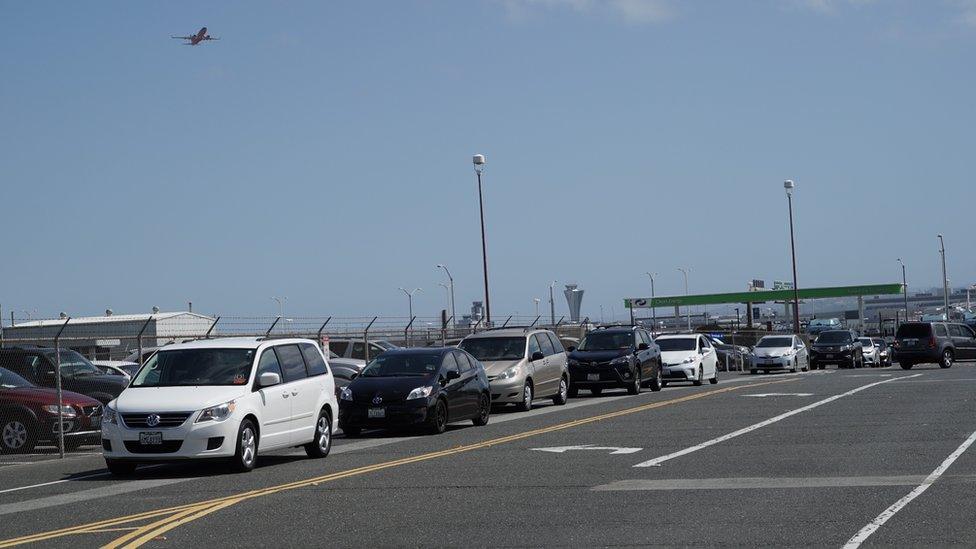
Uber drivers queue up at San Francisco's international airport
Those lucky (!) enough to be in the holding pen were in a long queue. Each time a request was made, a car was dispatched. Some had been there for over an hour, they said, with a suspicion that the queue system was broken.
Uber driving is very much a solo pursuit. Unlike cabbies, who have ranks around towns and cities, Uber drivers are normally found cruising around for the next fare. So the holding pen is one of the few places they get to socialise with each other.
Clock in, clock out
Uber's defence in the employee/contractor debate is that its workforce is pretty diverse. Some want to work part-time, others full-time. Some want to work intensely for a few weeks, then take a few weeks off.
It's on their own terms, and Uber says only a contractor set-up makes this possible.
And the vast majority of drivers I spoke to agreed. Passionately.
"If we were employees we'd have to have a boss," said Kirk, a full-time Uber driver for over a year.
"We'd have to clock in, clock out for breaks. It's not a viable solution for what we do.
"You essentially run a small business, but without the overhead of a brick-and-mortar business."
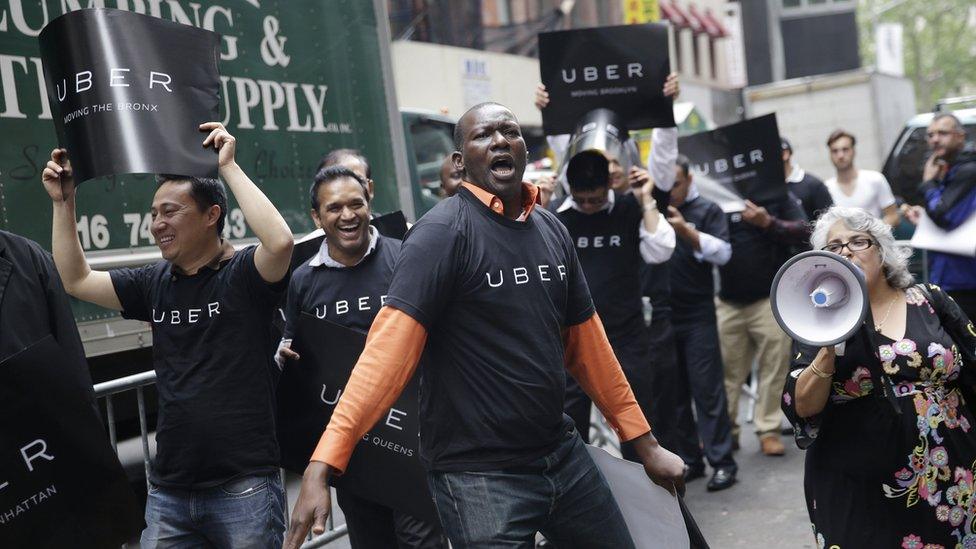
Many people are proud to be Uber drivers - these are pictured in New York
Overhearing our conversation was Nate, who has been an Uber driver for two months, as is his wife, who drove off as I was arriving to go and pick up a passenger. The hours go far more quickly when you're calling your own shots, Nate said.
Driver power
There's more than one exception to the positivity, though, and it's the drivers who've had more than two years on the job who are more keen on the idea of being an employee.
One man - who didn't want to be named as even his family are unaware of his worry - told me that he feels trapped in Uber, caught in a spiral he's not sure how to control.
Like many drivers, he took up Uber's offer of a loan to get a new car. That was in October last year, and it already has 80,000 miles on the clock.
The money for the car is deducted automatically from his earnings each week. It's about $1,000 (£655) a month. It's crippling him - so he works more hours, over 12 a day, putting even more strain on the car.
"I would prefer to be an employee with pay and benefits," he said. "And they could help me look after the car."
The financing plan runs for five years - and he's sure the car won't last that long. New tyres every four months. A new set of brakes. It's all going on credit, and he's running out of options.
"And then Uber drops its rates."
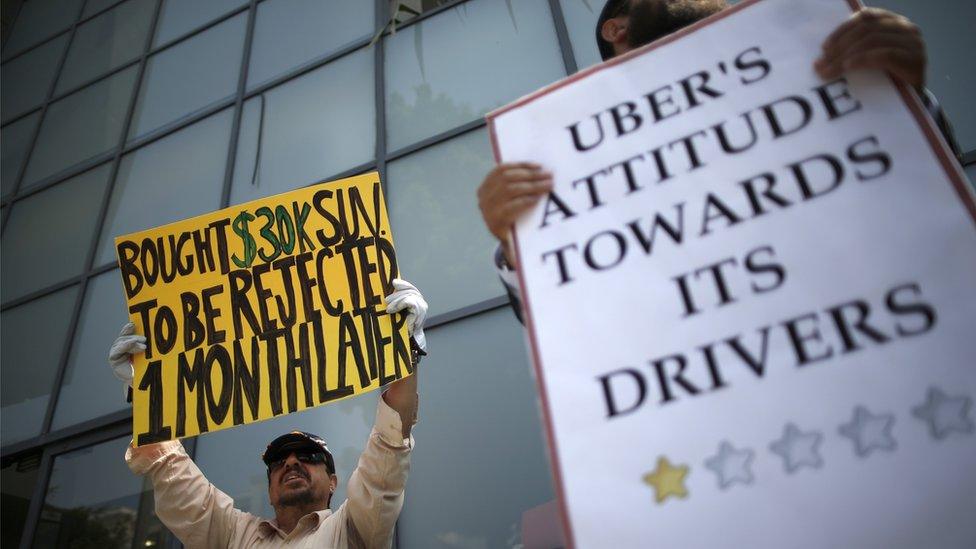
The company has been the subject of many protests, from both its own drivers and other taxi drivers
Recently, Uber offered a special deal for trips that went to the East Bay - the stretch of land east of San Francisco, over the water, that includes major cities such as Oakland and Berkeley.
For a limited time, rides to this area were 25% off. It enraged many drivers for whom a trip from the airport to Berkeley (and perhaps back again) is ordinarily a terrific earner - the difference between an average day and a great one.
'Working crazy'
Every driver said they felt they needed better representation, a system that could perhaps give drivers more of a say on how and when to reduce fares. One man, Napoleon, said some drivers could do with support when they feel they have got unfair ratings or other issues that affect their ability to pick up jobs.
And every driver said that as Uber was getting more popular, it was getting harder and harder to earn a living.
"It used to be 10 hours a day," said Nang, from Myanmar, who started Uber driving just over two years ago when she was studying.
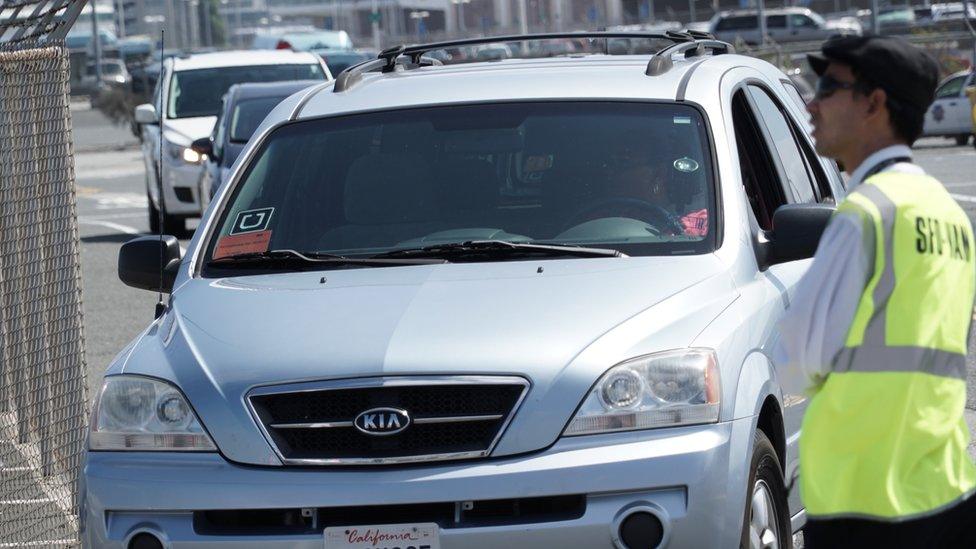
Drivers can wait a long time at the airport to get a job
"Now I have to work 16 or 17 hours. It's exhausting. I'm thinking of quitting next year. I'm working crazy - seven days.
"They are hiring so many people. I don't know where to go. I was in downtown for one hour and I didn't get a customer. Sometimes [at the airport] I wait two hours."

Uber's rapid growth
Company founded in 2009 by Travis Kalanick and Garrett Camp
App and services launched in San Francisco before extending to other US cities in 2011
Began to expand overseas in 2012
Now operates in hundreds of cities in 60 countries
But it has also faced protests and legal action by taxi drivers around the world, and faces bans or crackdowns by regulators in Asia, Europe and the US

Nobody I spoke to said they were considering getting involved in the lawsuit.
Most wouldn't be eligible - Uber thinks only about 15,000 of its 160,000 drivers could qualify, external - but even if they were, there's little suggestion that many would follow it up.
Being independent for the overwhelming majority of Uber drivers in that blustery car park was what made them sign up in the first place.
But the pressures of covering all the costs, while prices for rides get lower and lower, and more and more Uber cars compete for jobs - it's keeping some drivers awake at night.
- Published2 September 2015
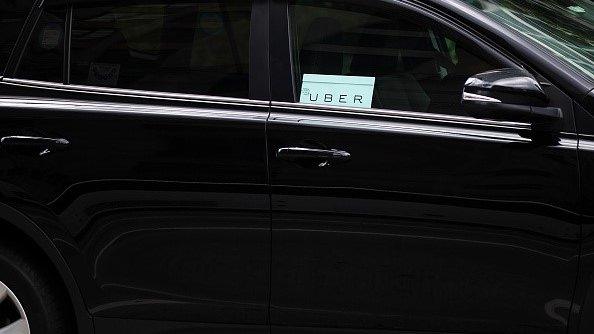
- Published8 July 2015
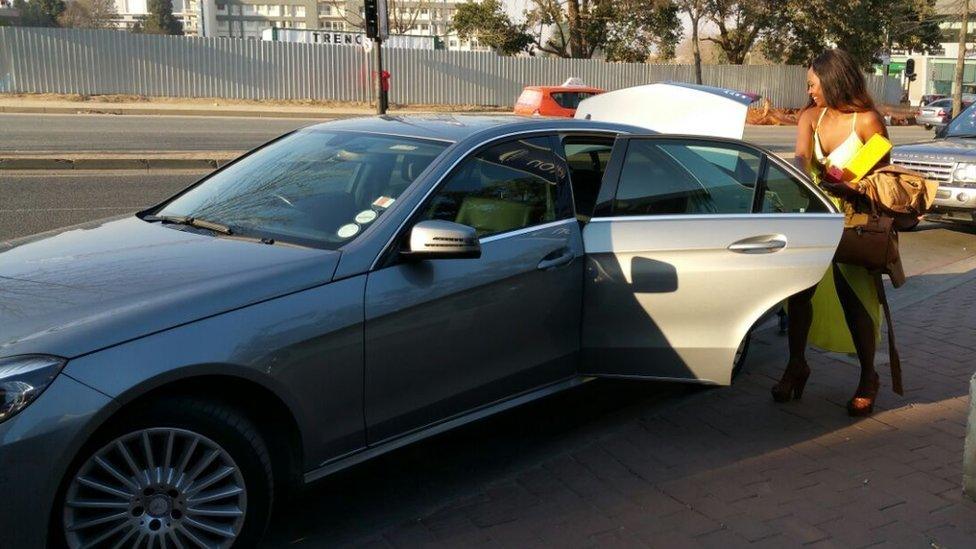
- Published15 May 2015
